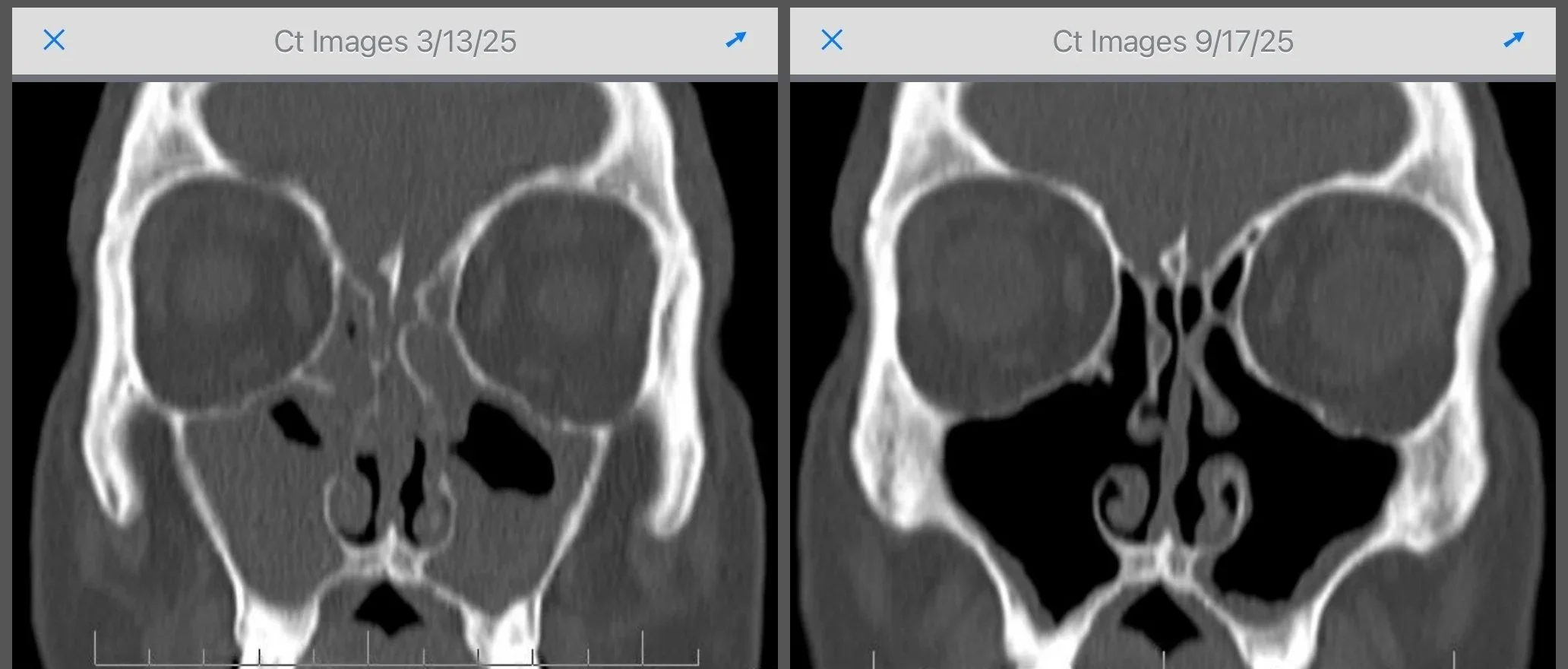Biologics for Nasal Polyps: Game-Changing Treatment
Living with chronic nasal polyps (grape-like nasal masses) can feel like a never-ending cycle of congestion, pressure, and sinus infections.
Even after sinus surgery, polyps sometimes grow back and keep you from breathing well or smelling normally. Today a new class of medicines called biologics is giving many people lasting relief.
A Game-Changing Innovation
Every so often in medicine, an innovation comes along that totally changes the game. For decades, people with chronic nasal polyps often faced multiple sinus surgeries. The question was not if another surgery would be needed, but how soon the next one would come.
Then biologic medicines arrived. Treatments such as Dupixent® (dupilumab), Nucala® (mepolizumab), and Xolair® (omalizumab) have dramatically reduced or even eliminated the need for repeated surgeries. For many patients, the improvement feels nothing short of remarkable.
What Are Nasal Polyps?
Nasal polyps are soft, noncancerous growths inside the nose and sinuses. They swell and block airflow, leading to:
Constant nasal congestion
Facial pressure or pain
Loss of smell
Repeated sinus infections
When medications like nasal sprays and steroids don’t keep symptoms under control—or when polyps come back after surgery—it may be time to think about additional options.
When Might Biologics Be a Good Option?
Of course, every patient is different and you’ll need to chat with your ENT to determine the best plan for you. But oftentimes, the treatment path looks like this:
Medical management. Daily nasal steroid sprays (fluticasone) and saline irrigations to calm inflammation and wash out allergens and irritants. Antibiotics or short courses of oral steroids during acute sinus infections.
Surgery. If infections or congestion persist despite medical care, endoscopic sinus surgery is the next recommended treatment. Surgery removes existing polyps and improves sinus drainage.
Biologics. If polyps recur and impact quality of life—blocking breathing, stealing the sense of smell, or causing repeated infections—biologic therapy becomes an option.
How Biologics Work
Biologics are targeted medicines given as simple injections at home or in the office. They calm the overactive inflammation that drives polyp growth, reduce swelling inside the nose and sinuses, and help restore normal breathing and smell. They are not antibiotics or steroids and can be used alongside standard treatments.
Seeing the Difference
Above is a real example from our practice:
On the left is the BEFORE picture. This is after the patient has had sinus surgery, but then the polyps recurred.
On the right is the AFTER picture. This is after 6 months of biologic therapy. Grey stuff is polyps, black is air. Less grey and more black means less polyps. You don’t have to be a radiologist to know that this patient is feeling a LOT better.
Key Takeaways
Chronic nasal polyps used to mean surgery after surgery, with no real way to break the cycle. Biologics have changed that story, offering many patients lasting relief and, for some, results that feel like a miracle. If nasal polyps keep coming back and are affecting your quality of life, it may be time to learn about this breakthrough treatment.


